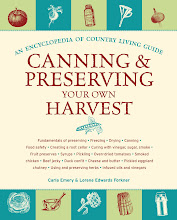Whether you are curling up by the fire on a rainy day with a wedge of baked brie and dried cranberries, toasting a Riesling with your special someone over an aged gouda, or packing your child’s lunch with an exquisite cheddar sandwich, I think we can all agree—cheese can be a pretty darn wonderful thing.
A wine-and-cheese pairing event last weekend got me thinking about the wonders of my beloved animal by-product, so naturally I consulted Carla Emery’s wisdom on the glory of cheese. Of course, she had plenty to say about cheese making for the individual as well as general information about the world of cheese.
Here are a few things any avid cheese-lover should know:
Homemade cheeses can be safe, traditional, and delicious.
As Carla Emery points out, “the importance of cheese viewed as a traditional food is that it’s the only way to preserve milk when you have no refrigeration…Milk in the form of cheese, after 60 days, is guaranteed free of bad germs because the cheese-making process kills them, so [historically,] where pasteurization was impossible and there were health problems with the milk, cheese was the safe way to eat it.” Additionally, there is no need to be concerned about attaining the expensive equipment and controlled conditions of a big factory. “The fact is, from a historic view, factories are very recent arrivals on the cheese scene,” and the Encyclopedia of Country Living is full of recipes and helpful information for the small-scale cheese producer.
Cheeses are much like people; they come in many shapes, sizes, and colors.
“There are 5 basic types of cheese: soft, semi-soft, firm, hard, and processed.
Soft cheeses are unripened, fresh ones: cottage, cream, pot, ricotta, gjetost, Neufchatel. The soft cheeses that ripen naturally in just a few days include Brie, Camembert, and the double and triple creams, which have thin white crusts and almost fluid insides.
The semi-soft cheeses are ripened using specific types of helper bacteria and yeasts or molds: Basic Swiss, Brick, Muenster; Liederkranz, Limburger, Port Salut; Roquefort and Gorgonzola. These are among the most difficult for homestead cheese-makers because of the special organism culture you need and the special “rip- ening” conditions needed to control how they grow.
Firm cheeses are Cheddars, Cheshire, Lancashire, Caciocavallo, Swiss Emmenthal, Gruyere, Jarlsberg, etc.
Hard cheeses are made like the firm cheeses but are matured to a grainy texture for grating: Asiago, Parmesan, Romano, Sapsago, etc.
Processed cheese is called “American” cheese and comes from factories, and thank God if you don’t have to eat it. It’s made of chemicals, artificial flavor and color, and a wide variety of other nondairy items with some milk thrown in. Your homemade cheese is just milk plus curdling agent.”
Try making your own!
Chevre
Stir 1⁄2 c. warm cultured buttermilk into 1-gallon still-warm-from-the-animal milk or into 1 gal. of pasteurized milk warmed to 85–90 ̊F. Stir in 6 drops of liquid rennet. Stir only 1 to 2 minutes. Cover container with a cloth. Let stand in a warm room all day. Line a colander with boiled muslin. Pour chevre into the colander. Drain off whey. Tie corners of cloth together and hang the remaining curds to drain overnight. Refrigerate. Use like cream cheese.








1 comment:
What a wonderful article. Thank you. I hope you do allow me two comments:
First of all, Wine and Cheese pairing is usually what people think of immediately. But many experts are convinced that cheese actually pairs way better with beer. Beer has a similar variety to cheese.
Secondly, many of my customers (I sell home cheese making equipment) Want to make a i.e. Gruyere. Although you can get all the ingredients it is almost impossible to make. The flavor of a Gruyere is made to 90% by the way the cheese is matured. The maturation is for about 12 moths at specific temperatures and humidity. Similar thing with Parmesan etc. So yes people can make a Gruyere style cheese or a Parmesan style cheese but it is very hard to make a proper Gruyere (not taking into account that only Swiss made cheese is allowed to be named Gruyere).
I know this all sounds a bit arrogant but I think home cheese makers should be aware of this otherwise they might get disappointed.
And the other interesting thing is that I have many customers who want to make the cheese they buy in the supermarket. I always tell them that they can't make such a bad cheese because they would need a huge factory for it, ha ha ha.
Keep up the good work, I love reading your blog!
Cheers
Peter
Post a Comment